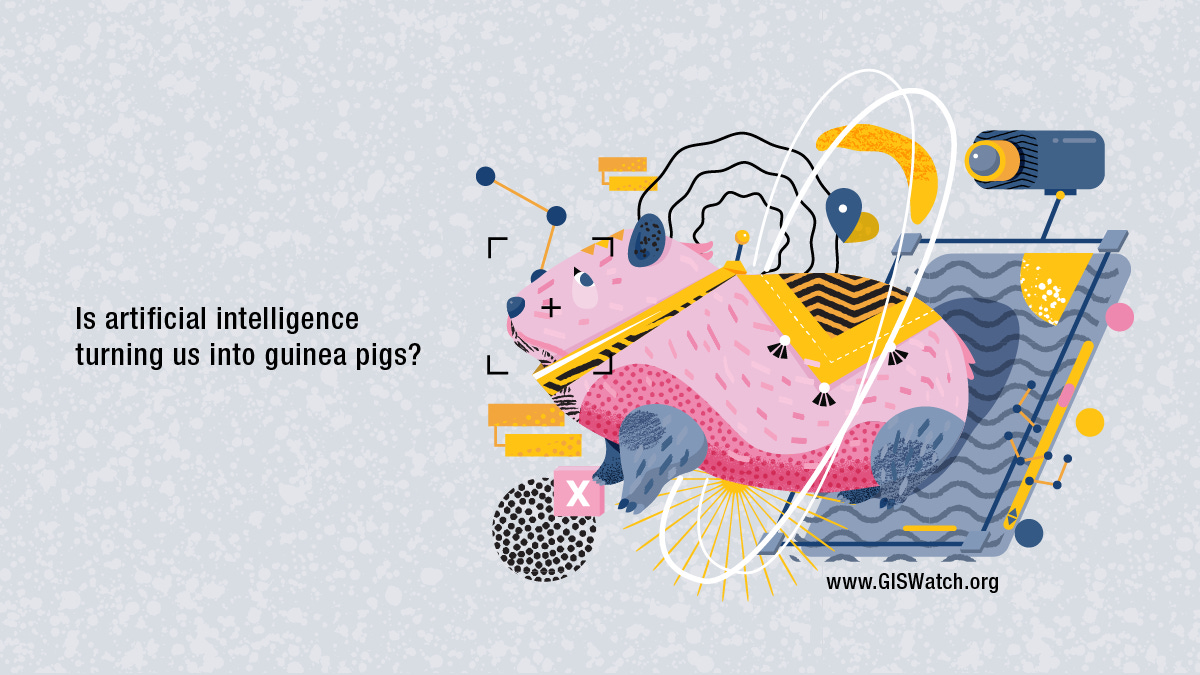Investing in Decentralised Intelligence
We are heading towards a world where intelligence will become the core skill for humans to survive and thrive. It's no longer just about human intelligence, which has aided our survival on this earth for thousands of years. Now, machine intelligence is growing faster than human intelligence, and the time is not far off when machine intelligence will surpass humans in many areas. Competing against machine intelligence might not even make sense, but coordinating with it to enhance our human intelligence will lead us to a better life.
Both machines and humans need data to develop intelligence. Data must be well-trained and continuously improved for better intelligence. In recent years, humans have provided all sorts of data, thoughts, and opinions to social media companies like Facebook and Google. These companies are now using the data, created by humans, to build large language models with intelligence derived from trillions of units of text.

Training large datasets requires expensive computing resources, which are only available in significant capacities to tech giants like Google and Microsoft. This grants them more control over the future of the human race, as those who control AI will have influence over human intelligence. Humans might eventually start learning from machines, using machine intelligence to enhance their own, while these companies generate substantial revenue from it, potentially leading to a dystopian mental state for humans.
So, now the real question is: how do we eliminate the risk of a dystopian future brought about by the constant evolution of AI systems trained by centralized entities?
If AI is considered a curse to humanity, then crypto is a blessing. By incorporating crypto into AI, we could actually minimize the risk of dystopia. The major risk arises from the centralization of AI, but when you decentralize not only Artificial Intelligence but all kinds of intelligence, from data to social aspects, we, as humans, could truly safeguard our own intelligence and coexist with machines for the next 100 years.
Now that the context is set, it's time to discuss the topic for which we have all gathered here: 'Decentralised intelligence.'
Let's revisit the origin story of Bitcoin. Bitcoin was born when a major American bank failed to manage people's money. Bitcoin emerged as an alternative and better path to manage our money, providing true self-custody of our wealth. This concept gave birth to decentralised cash, where a network of computer nodes, run by a few tech-savvy individuals, secures the Bitcoin network, verifies transactions, and ensures it keeps running. Data is not stored in a single place; instead, it is available to all nodes in an encrypted format on an immutable ledger. The invention of an immutable ledger was a significant breakthrough, as it opened up possibilities for numerous use cases where central entities could be replaced by decentralised networks run and managed by the people.
Given that we are aware of the major threat posed by centralised control on AI, the solution lies in the immutable ledger: 'The Public Blockchain.' This technology offers us the means to decentralise various types of intelligence.
- Artificial Intelligence
- Data Intelligence
- Predictive Intelligence
- Collective Intelligence
- Emotional Intelligence
- Social Intelligence
- Creative Intelligence
Artificial Intelligence

Artificial Intelligence Systems are being built using these 7 Key Components:
- Data (Input) : Sourced from Different Websites, Books etc.
- Algorithms : Mathematic models design to do specific tasks, makes prediction and learn patterns.
- Computing Power : High End GPU Resources Eg: NVIDA H100
- Training Process : It involves feeding the data into AI System, adjust algorithms parameters, and optimize ML models to improve the performance.
- Evaluation and Validation : After Training, AI System needs to be evaluated and validated through separate data sets.
- Integration : An AI System needs to be integrated into a front end application or platform.
- Continuous Improvement : Training models need to be evolved based on collected feedbacks from users.
Let’s explore what component of AI could be possible decentralised
We have a large pool of independent AI researchers who can potentially join a distributed and decentralized network and train their ML models on collective computing resources pooled together by a distributed network of GPU machines. Computer nodes could also join the same decentralized network to act as validators for the ML training process. An incentive scheme in the form of a crypto token could be introduced for all key participants of such a network: ML model providers, GPU providers, validators, and users.
Examples:
Bittensor and Gensyn are two projects that are building a decentralized network for machine learning, computing resources, and data training. SingularityNet has built an ecosystem of different protocols that are decentralizing different components of AI separately. We could possibly see more players in this particular space in the near future.
Learn more about Decentralised AI:
https://twitter.com/hmalviya9/status/1679377013470294016?s=20
Data Intelligence

Data is the most valuable asset in both the real world and the crypto world. In the real world, tech giants like Google and Facebook have been harvesting internet users' data for decades. In the crypto world, we have the ability to control our own data and choose whom to share it with. Decentralized data platforms empower users and increase their data privacy and security.
The tokenization of real-world and on-chain data could create revenue opportunities for data scientists and analysts, while buyers could access an organized marketplace to purchase data directly from data owners in a peer-to-peer fashion, without involving any third parties.
For example, clinical research data could be directly sold to medical companies through an open marketplace where both buyers and sellers can engage in a secure and peer-to-peer trade.
In another example, on-chain analysts can sell their on-chain discoveries directly to crypto research companies like Messari.
Examples:
Ocean Market by Ocean Protocol: Ocean Market is a decentralized marketplace to discover, publish, and trade on-chain datasets. The top seller on Ocean Market has made over $100K in revenue. $OCEAN is the native value exchange token being used in Ocean Market. While Ocean Market gained significant traction when it initially launched in 2021, the activities on the marketplace have now nearly ceased.
Arkham Intel Exchange by Arkham: Arkham Intel Exchange was launched by Arkham yesterday. It's an on-chain data marketplace where people can post specific on-chain task-based bounties, and on-chain analysts can compete with each other for the bounty. $ARKM is being used as the value exchange token in Intel Exchange.
Collective Intelligence

When individuals from various walks of life come together and share their intelligence on a particular subject, it leads to the expansion of knowledge, creating a collective intelligence that is greater than the sum of its parts. Web3 brings people from diverse experiences together, enabling them to collaborate on a shared vision. They can leverage their expertise on a decentralized platform and receive rewards in tokens.
Examples:
Rejuve.AI: Rejuve.AI is a SingularityNet Ecosystem Project. They are building a decentralized longevity network that enables people from all around the world to share their health data, receive valuable insights, contribute to longevity research, and earn $RJV tokens. The Rejuve app is currently in the Beta phase.
Predictive Intelligence

Historical data and patterns are being used to forecast future events in capital markets, weather, and other domains. In markets such as stocks and crypto, many traders rely on technical indicators to predict the future value of assets. Marketplaces like TradingView exist, where Data scientists can sell their predictive models to traders. However, as TradingView is a web2 company, it controls revenue distribution, making it challenging for many to get the fair share.
To address this issue, data scientists can create predictive models and tokenize them, allowing people to trade tokens based on their beliefs and predictions.
Example:
Numerai: Numerai is a decentralized platform where data scientists build various ML models to predict the future price of stocks. Numerai also runs a hedge fund that allocates funds into different stocks based on ML models created by the top data scientists, who are selected through a competition. Data scientists are compensated in $NMR if their ML model wins in the competition.
Emotional Intelligence

We all need emotional intelligence at some point in time, and we may not want to appear emotionally vulnerable in the real world. That's where anonymity can play a crucial role, particularly when it comes to sharing emotions with others, especially on the internet. An anonymous decentralized platform that connects emotional support experts with people seeking various forms of emotional help could be a gamechanger. A Value exchange Token could be used to incentivize the time spent by these experts in counseling sessions, providing emotional support to seekers.
Examples: I’ve not found any startup working on it.
Social Intelligence

Social intelligence involves understanding and navigating social interactions. Web3 platforms could enable the decentralization and tokenization of reputation systems, where individuals can build and maintain their reputation through interactions and be rewarded with tokens for their positive contributions.
Example:
DropD Network is building a decentralized social dating network where people can connect and date with each other while maintaining their reputation score to increase their chances of finding potential matches. Users are rewarded with a token for the time they spend on the platform, promoting a circular economy concept envisioned by DropD.
Creative Intelligence

Creative intelligence involves generating innovative and artistic ideas. Decentralized platforms could tokenize creative works such as music, art, and writing, allowing artists to directly connect with their audience and be rewarded with tokens for their creations.
Examples:
Mirror: Mirror is a decentralized blogging platform where writers can publish blogs, offer subscriptions for their writing, and raise funds from people for any project.
Soundxyz: Soundxyz is an open marketplace for music NFTs. Singers and composers can mint their music as NFTs, list them on the marketplace, and listeners can buy their work by paying in ETH or dollars.
Zora: Zora is an open marketplace for artists. It allows artists to mint their digital artwork and distribute it in an open marketplace. Artists can set royalties of their choice, choose the price of the artwork, and connect with a global network of interested buyers.
Investment Thesis
Decentralized Intelligence as a whole is going to be an intriguing investing theme in the future. This theme will evolve in phases. In the initial phases, we can expect more attention on decentralized artificial intelligence platforms, creative intelligence platforms, and data intelligence platforms. Other areas like collective intelligence and social intelligence might be a bit ahead of their time, but we will witness some initial experiments in this area in the near future.
As a value investor, you can track the entire investing theme, but it is essential to allocate your risk based on retail interests around all the sub-themes discussed in this newsletter above.
That's it, folks! I tried my best to pen down my thoughts around this theme. I will be writing more on this topic in the near future. If you enjoyed reading this newsletter, please show your support, and feel free to share your thoughts on this topic in the comments.
Disclaimer: I am not offering any kind of financial advice here, and it is recommended to use the information provided in this letter for educational purposes only.











![[LIVE] Engage2Earn: auspol follower rush](https://cdn.bulbapp.io/frontend/images/c1a761de-5ce9-4e9b-b5b3-dc009e60bfa8/1)



![[ℕ𝕖𝕧𝕖𝕣] 𝕊𝕖𝕝𝕝 𝕐𝕠𝕦𝕣 𝔹𝕚𝕥𝕔𝕠𝕚𝕟 - And Now What.... Pray To The God Of Hopium?](https://cdn.bulbapp.io/frontend/images/79e7827b-c644-4853-b048-a9601a8a8da7/1)











































